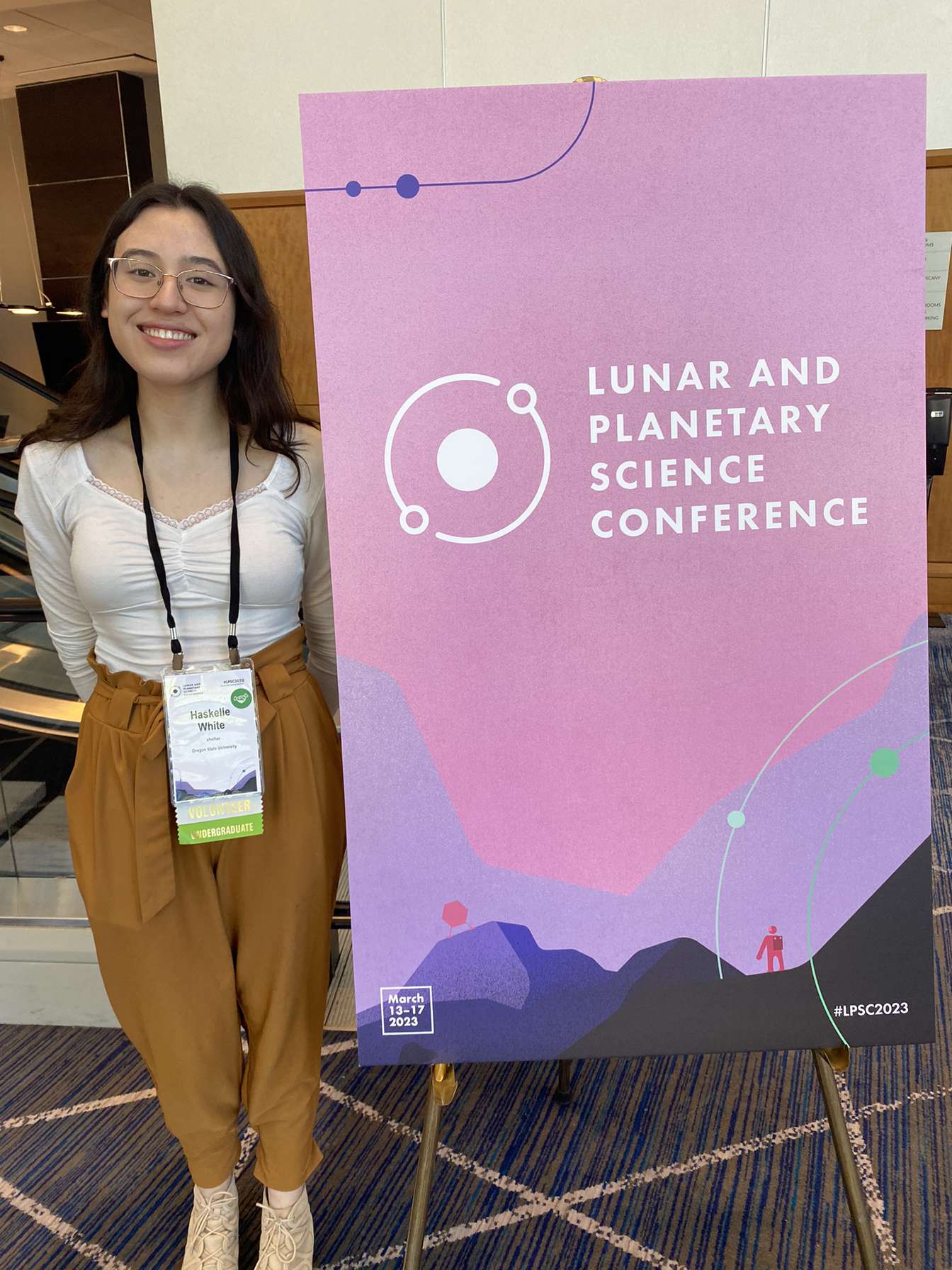Image of Venus: NASA
If you’re interested in the possibility of life on other planets and what it might teach us about life on Earth, you need to keep your eye on soon-to-be-CEOAS-alum Haskelle White. She’ll be taking what she’s learned about our own planet during her undergraduate years and using it to study the geologic evolution of Venus.
White finishes her undergraduate geology degree in summer of 2023, and then will be off to graduate school at the University of Washington. At UW, she will use a prestigious fellowship awarded by the National Science Foundation to examine the shift in conditions on Venus from potentially life-supporting to prohibiting. White is fascinated by that transition.
And she is really good at transitions. Always interested in science, she originally planned to study engineering while at Oregon State. “I have always loved space, but I realized that I didn't really like aerospace engineering. One day I read an article called “Dear college students: You should take geology” by Eric Klemetti. And it made me understand all the ways geology could be used to talk about earthquakes, volcanoes and tectonic plates in space, and I thought ‘Oh, this is good. I found it. This is perfect.’” She switched her major to geology, which also satisfied her deep interest in the natural environment here on Earth, and she never looked back.

She started her undergraduate degree online during the pandemic — “I really enjoyed my first year of college, but it wasn't what I expected it to be,” she admits — but still dug in to all that CEOAS and Oregon State had to offer. At the beginning of her second year, she took a field camp course and was excited to meet her classmates in person while exploring field geology. “From then on, I knew geology was right for me because of how well those classes are taught and how close the community is. There’s a passion here, and I can tell that [the faculty] really enjoy what they do,” she says.
To put her geology skills to work, she conducted independent research in the lab of CEOAS hydrogeologist Pam Sullivan (“just the best mentor I could imagine,” White says) under the Oregon State University Undergraduate Research, Scholarship, & the Arts Engage program. “In the first project I worked on, I helped graduate students relate land cover changes to soil cores and atmospheric data in order to look at how gases in the atmosphere interact with the soil,” she explains. That project went so well that she worked on an independent project the following year studying how the volcanically derived soils in the H.J. Andrews Experimental Forest have weathered over time. With Sullivan’s support, she presented her work at the 2021 Geological Society of America conference.
And then, it happened. She became, in her own words, “fully a Venus girl.”
In summer of 2022, she did a NASA internship in a lab at the University of Arkansas to work with Vincent Chevrier, an associate professor in the Arkansas Center for Space and Planetary Sciences. The center has a series of chambers that simulate the conditions on various planets and moons, allowing for experimental work in chemistry and biology. White was afforded the opportunity to work in one of Chevrier’s areas of expertise — the evolution of conditions on Venus using the center’s Venus chamber.
To be clear, there is no direct evidence that there was ever life on Venus. But scientists have found that, once upon a time, Venus’ atmosphere and surface could have been conducive to supporting life as we know it. Now, though, its carbon dioxide atmosphere and surface temperatures high enough to melt lead and are prohibitive of life.
“I studied how minerals could possibly tell the story of Venus’ transition from habitable to inhabitable,” she says of her summer studies. She will continue that work at University of Washington in the fall, in the lab of astrobiologist Joshua Krissansen–Totton, this time using geochemical modeling to try to tell that transition story.
It’s hard to avoid commenting that White is a rock star in multiple ways: In addition to studying geology, she minored in music at Oregon State, and is an accomplished pianist and vocalist. She looks forward to continuing to write and perform instrument-driven rock and indie music once she hits Seattle.
With all the transitions she has already navigated, this shift from stellar undergraduate to eager graduate student should be no problem. And then what?
“By the time I’m done with my Ph.D., NASA Venus missions might start happening and I’ll be ready to work on them,” she says.
Perfect timing.
By Nancy Steinberg, posted July 18, 2023
See more feature stories